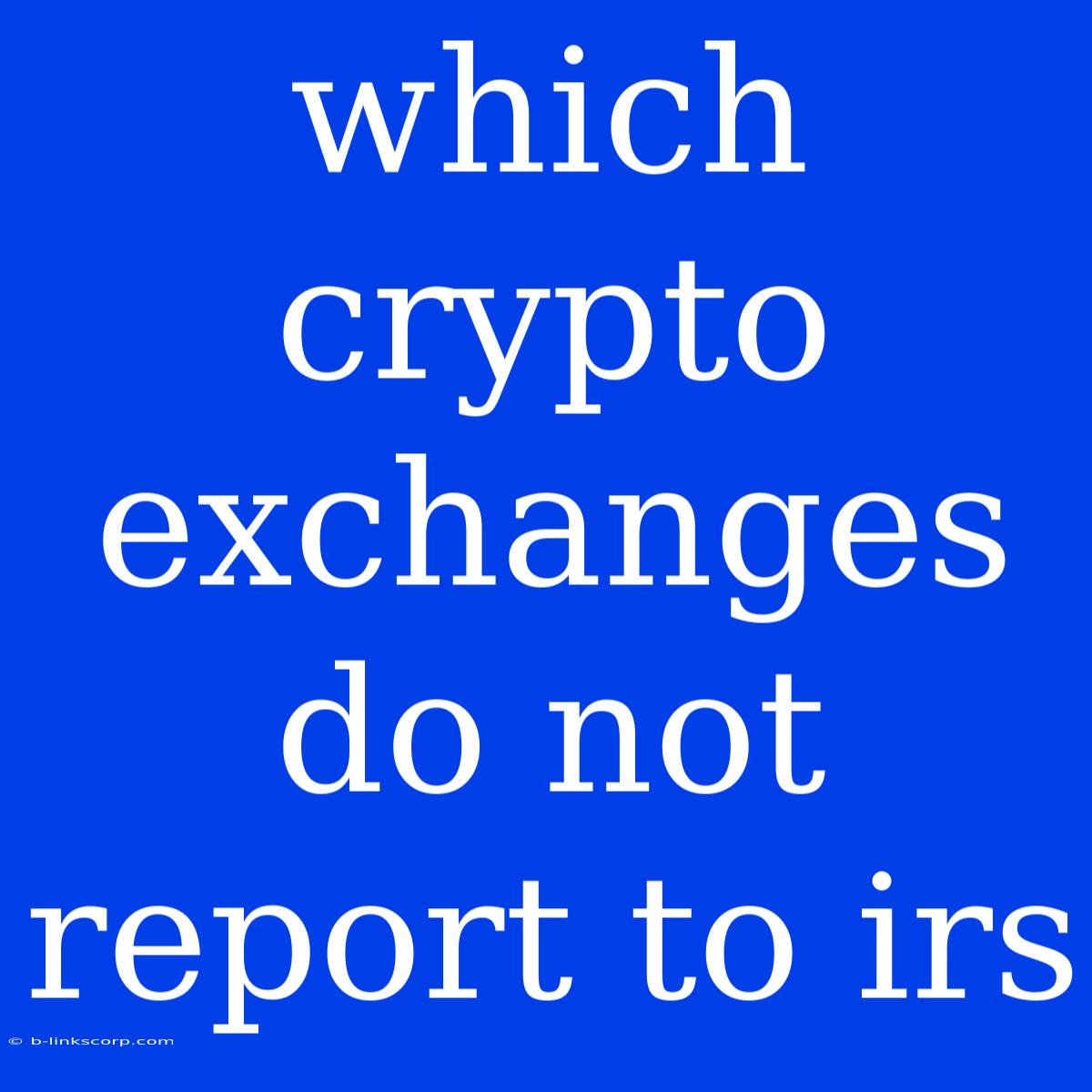Crypto Exchanges That Do Not Report to the IRS: A Guide for Crypto Investors
The Internal Revenue Service (IRS) has become increasingly focused on cryptocurrency transactions, treating them as taxable events. This has led many investors to seek out exchanges that do not report their activities to the IRS. However, it's crucial to understand that no crypto exchange can guarantee complete anonymity.
Here's a breakdown of the current landscape:
Exchanges that do not directly report to the IRS:
-
Decentralized Exchanges (DEXs): These exchanges operate on blockchain networks without a central authority. Users trade directly with each other, eliminating the need for a third party to collect and report data to the IRS.
- Popular DEXs include: Uniswap, PancakeSwap, SushiSwap, and dYdX.
-
Peer-to-Peer (P2P) Exchanges: These platforms allow users to buy and sell cryptocurrencies directly from other users, similar to DEXs. They typically do not have KYC (Know Your Customer) or AML (Anti-Money Laundering) requirements.
- Popular P2P Exchanges include: LocalBitcoins, Paxful, and Bisq.
It's important to note:
- IRS Monitoring: While these exchanges may not directly report user transactions to the IRS, the IRS can still track down crypto transactions through blockchain analysis and other investigative methods.
- Tax Obligations: Even if an exchange doesn't report your transactions, you are still responsible for reporting your crypto income and losses to the IRS.
Exchanges that require KYC/AML:
- Centralized Exchanges: Most popular centralized exchanges require KYC/AML procedures. This means they collect user information and are required to report suspicious transactions to the IRS.
- Popular Centralized Exchanges: Binance, Coinbase, Kraken, and Gemini.
Tips for Tax Compliance:
- Keep meticulous records: Track all your crypto transactions, including dates, amounts, and relevant information.
- Consult with a tax professional: Seek advice from an accountant or tax attorney specializing in cryptocurrency.
- Stay updated on regulations: The IRS is constantly evolving its rules and regulations regarding cryptocurrencies.
- Consider using a tax software: Several tax software programs now offer features specifically designed for crypto transactions.
Conclusion:
While some crypto exchanges may not directly report to the IRS, it's important to remember that your crypto transactions are not completely anonymous. Taking the necessary steps to comply with tax regulations is crucial to avoid potential penalties.
Disclaimer: This article is for informational purposes only and should not be construed as financial or legal advice. Consult with a qualified professional for personalized guidance.

